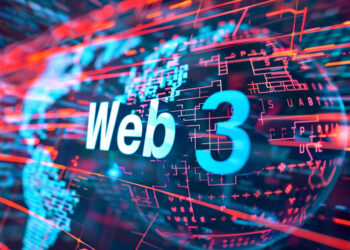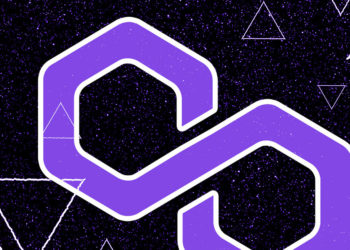CryptoSlate recently had the opportunity to chat with George Connolly, President of OneLedger, a blockchain as a Service (Baas) solutions provider.
George received an MBA from the University of Liverpool and has held senior positions at PwC East Caribbean, Productive Business Solutions Technology, Influx, Pearsons Group and is an official member of the Forbes Business Council
What is your professional background and how/when did you get into crypto?
I have a diverse professional background starting in general management after completing my first degree. I worked in Canada and throughout the Caribbean in retail and distribution before settling into the tech industry in 2001. Systems Integration and ECM were the main focus back then. In 2008, after the Commonwealth Heads of Government Conference was held in Trinidad, I started an advocacy relationship across all English speaking Commonwealth territories for the Commonwealth Business Council in the area of using ICT for development and giving guidance to partner countries on setting up their national ICT strategies/platforms to drive rapid uptake and development.
I got interested in blockchain about five years ago. I quickly understood the potential of the technology to fundamentally transform business processes in ways not imaginable with traditional architectures and applications. I believe blockchain will become as ubiquitous as mobile devices, the internet and cloud computing. It is a highly disruptive platform.
I also believe blockchain adoption in the enterprise space has been very slow to develop.
The technology is very hard for business leaders to understand and there are many questions about it. However, there is tremendous momentum building for blockchain. Large public companies are now beginning to hold crypto reserves and planning to accept them as currency. This is also forcing traditionally conservative accounting firms to develop methods and tests to audit crypto assets, further demystifying blockchain and adding credibility. We expect the future for blockchain technology is now, and our company is well-positioned to capitalize on the opportunity.
What is OneLedger and what services does OneLedger offer?
OneLedger’s vision is to provide “a single source of truth”. Our purpose is to help businesses, governments and people solve their most complex and important challenges using blockchain and other disruptive technologies.
OneLedger is a unique engine, not an adjunct of an existing platform. Unlike other blockchain projects, we built it from the ground up. Our platform uses Tendermint as its consensus engine. We have modified it to enhance performance, making it one of the fastest platforms available.
The OneLedger platform is designed with an open, modular architecture, using plug-and-play components. It delivers robust interoperability characteristics unique in the market. This makes it an ideal foundation for developing enterprise-grade applications and industry solutions across a broad array of use cases.
The solution can be delivered as public, permissionless and private permissioned blockchain models.
With this in mind, we offer a consulting service to assist clients who need bespoke solutions, we also offer a suite of customised off the shelf (COTS) applications in most industry segments, especially: supply chain management, finance, asset management and KYC. One of our most interesting projects is the International Health Passport (IHP). It is a blockchain-based digital health passport. The IHP enables secure access that certifies health status while protecting the user’s privacy for a myriad of use cases related to access in this COVID-19 environment.
Why do you feel that OneLedger is the most effective solution to help businesses integrate blockchain technology?
Technology is just a tool; the real value of technology is the social science that can be derived from its use. Not only does OneLedger have a unique set of technical skills and capabilities that set us apart, but we also have three world-class executives that truly understand it’s not about the technology, it’s about solving business problems.
We were the client and the system integrators before. We understand that – in many cases – C-Suite executives don’t really need or want to understand the complexities of the blockchain. This said, they are concerned about and need assurance the blockchain is compliant with appropriate data privacy/security and other regulations and practices. But what they really want is new, transformative solutions to their most complicated business challenges, reducing cost, shortening cycle times, improving customer satisfaction and increasing transparency and visibility.
The business experience of our leaders allows them to translate “tech talk” into practical solutions for our customers…helping them unlock the potential of the blockchain.
What is the utility of the OneLedger Token?
OLT is primarily a utility token and is used to interact with the platform in a variety of ways: Interoperability, Staking, Delegation, Governance, DApps, Creation of Custom Tokens, and a Domain Naming Service.
One of the main areas of focus for OneLedger is interoperability. OLT will be used as fees for all the interoperable operations across chains. OneLedger’s expertise is in connecting businesses to blockchains, keeping their centralized data consistent with the transfer of assets on the blockchain.
OLT is also utilized for any transaction a private business blockchain makes on the public network. Considering the volume of transactions for businesses, this will be a significant boost to the utility of OLT.
A future capability of OneLedger is the ability to create Custom Tokens, similar to Erc-20 for Ethereum. Providing this service for businesses is critical when thinking about digitizing assets or creating a credit system for loyalty programs.
What incentives do $OLT holders benefit from?
Low cost of transaction fees, high performance of the network, interoperability with other chains, delegation and staking with rewards and the superb functionality of OneWallet.
Tell us more about OneLedger and your recent government partnerships to help the fight against Covid-19?
Literally in the past several weeks Governments around the world have recognized the current paper-based approach to providing test/vaccine evidence is not adequate. Paper is simply too easy to tamper with. And the risks of allowing even a single infected traveller across the border are – well let’s say – failure is not an option.
We anticipated the need for a new approach and began working on our blockchain-based International health Passport several months ago. We were one of the first companies with a working system. We are now actively educating governments on the power of the solution and gaining the required approvals to sell the system. We are in ongoing and intense discussions with several governments in the Caribbean, as well as Canada, the US, Ghana and Nigeria.
These discussions are most advanced in the Caribbean where we are working through approvals and signoffs from multiple ministries and Statutory organizations that will either contribute data or will be using the app as a part of its regulatory framework.
We are now having a discussion with Customer and Border Authorities in key markets to gain written validation that they will accept the data on the app once presented on entry. The Barbados Government is drafting a resolution to use it as the official inoculation certificate and a verified health status document for travel.
So, the process is complex and fluid.
Can you tell us about the Kratos Mainnet on Google Cloud Marketplace?
Organizations and individuals now have the capability to launch the OneLedger Full Node or Validator Node, on our Kratos Mainnet. By launching the full node, you can gain access to the OneLedger blockchain network, where they can connect directly to the OneLedger Kratos Mainnet. Once your Full Node is launched and has caught up, you can optionally stake OneLedger Token (OLT) and turn this node into a Validator. As a Validator, you will earn Block Rewards as a return on investment for staking your OLT
In August 2019, after a tremendous amount of work we launched our Chronos Testnet in partnership with the Google Cloud Platform (GCP). Developers now have the capability to launch the OneLedger full node in a matter of seconds.
By launching the full node, developers get access to the OneLedger blockchain network where they have the ability to create decentralized applications. In addition, any user can simply launch a OneLedger full node to support the Chronos Network.
Google Cloud Marketplace provides cloud computing services that facilitate an on-demand environment for developing, testing, delivering, and managing software applications. It has a broad range of enterprises from different industries currently using its platform.
By utilizing OneLedger’s full suite of developer tools, businesses and developers will receive access to the OneLedger protocol, and be able to run the node within seconds.
Being on the Google Cloud Platform serves two important functions, firstly, it exposes OneLedger to a wide user base which Google already has, and secondly, it helps developers get started smoothly.
We are currently in the middle of an explosion of DeFi protocols and new DeFi projects. What is OneLedger’s approach to DeFi?
Our soon to be launched DEX will be an industry-leading, multi-platform, multi-asset crypto decentralized exchange developed by OneLedger. It will allow trading of multiple tokens with no intervention; effectively eliminating the middleman.
The OneLedger team has developed and researched this DEX offering over the last two years and created a concept that is operationally faster, more inclusive and with an enhanced user experience, compared to the existing decentralized exchanges. Our goal is to improve significantly on what already exists in the marketplace.
The DEX will use a proof of stake based consensus mechanism which can produce a throughput of about 10000 tps , which is a lot more than what any proof of work chain can offer. Built on OneLedger the gas fees charged for the DEX protocol is stable and much less than the fees charged on the Ethereum blockchain.
OneLedger has also built multiple DeFi products for private clients, covering areas such as the tokenization of assets for the real estate industry, and a fully integrated cross-border p2p (peer-to-peer) platform using blockchain technology where investors can directly provide loans to micro, small and medium-sized businesses.
Do you have any blockchain and/or crypto predictions for 2021 and beyond?
We believe the future of doing business will be through tokens and smart contracts, with a keen focus on maintaining individual data sovereignty and operating across interconnected blockchain networks enabling seamless independent user interactions. Cryptocurrency is now too big for Central Banks to ignore. This is both a good and bad thing. Good because growth is always a way to build scale, strength and influence – bad – because the real fight for fiscal regulation will begin in earnest shortly.
What is your most controversial opinion relating to blockchain and/or cryptocurrency?
I’m not certain if it’s controversial or not, but we are preparing for a world of public and private permissioned digital currencies. We see sovereign governments taking more control of their financial systems, with global financial houses disappearing or consolidating into national platforms.
Today, there is almost one trillion USD market cap in cryptocurrencies, imagine when that expands five times to the size of the Japanese economy, the third-largest in the world. Will the global finance community continue to look at it as an annoying anomaly, or will they take action to bring it under control. We foresee the latter, but digital currencies are here to stay.
We see a world where digital currencies rule, payments are borderless and all this movement of correspondent banking systems and 2-3 day settlement on FX wires will disappear. The downside for the digital currency is that they will become nationalised or converge into a few main tokens, with KYC and AML restrictions in place. Digital wallets though not registered at commercial banks will have to be part of a national wallet database, as ‘free’, ubiquitous and anonymous movement of assets is filtered through a few global networks.
Blockchain has and will continue to change the world forever.
Connect with George Connolly
Like what you see? Subscribe for daily updates.
Credit: Source link












































































































































